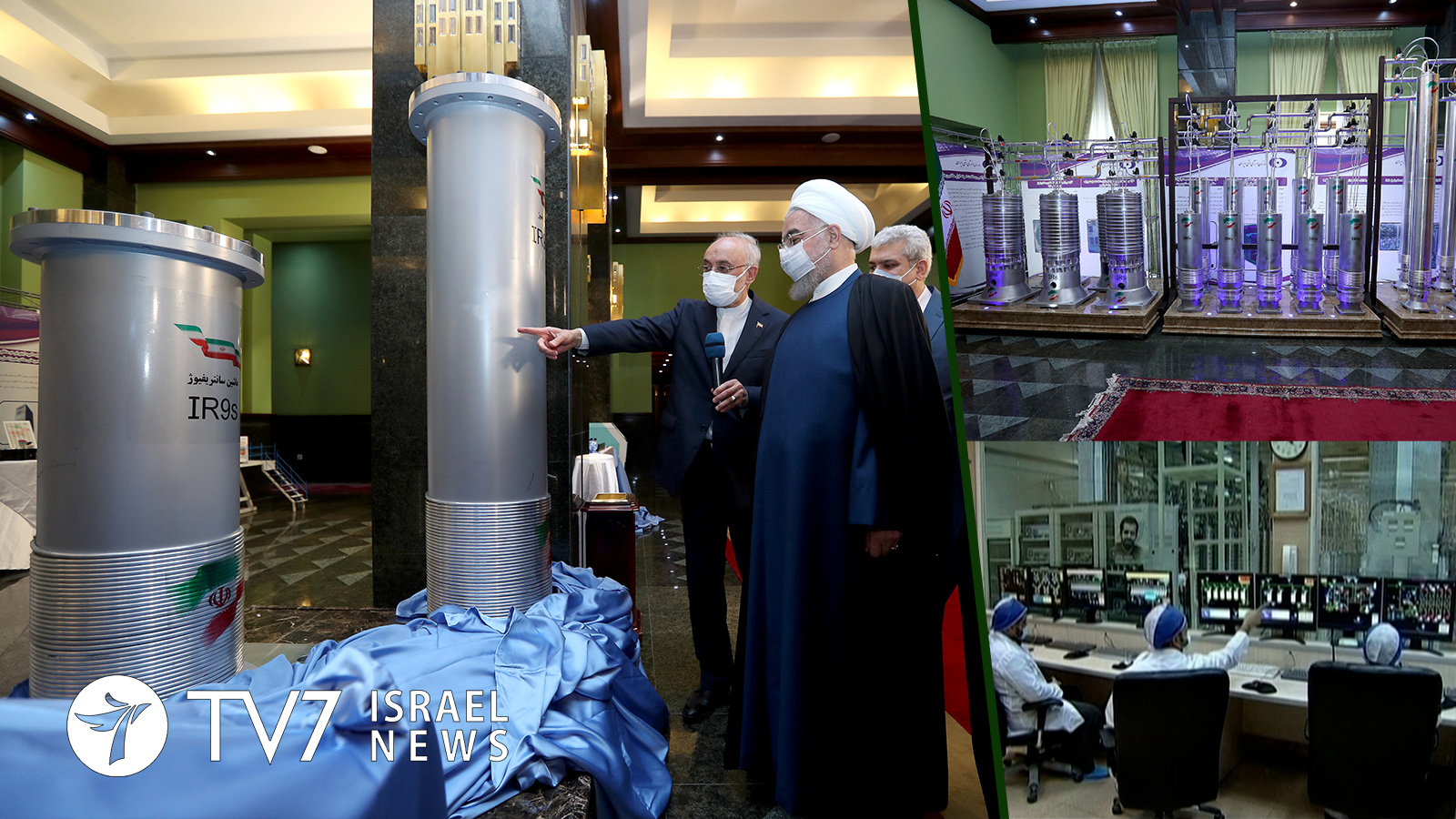Iran’s declaration that it will enrich uranium to 60% purity and activate 1,000 advanced centrifuge machines at its underground Natanz plant is evoking widespread concern worldwide.
“We take very seriously its provocative announcement of an intent to begin enriching uranium at 60%,” United States Secretary of State Antony Blinken told a news conference at NATO headquarters in Brussels.
“I have to tell you the step calls into question Iran’s seriousness with regard the nuclear talks, just as it underscores the imperative of returning to mutual compliance with the JCPOA,” Blinken said, referring to the nuclear deal, also known as the Joint Comprehensive Plan of Action.
The Ayatollah regime said the development is in response to what it says was an act of sabotage by Israel against its key Natanz nuclear facility.
The JCPOA capped the fissile purity to which Iran could refine uranium at 3.67%. The ramp from the 20% maximum it has reached so far brings the Islamic Republic significantly closer to the 90% purity level necessary to produce nuclear weapons.
Iran and world powers held what they described as “constructive” indirect talks to restore the JCPOA, that unraveled as the Islamic Republic breached its limits on uranium enrichment in a graduated response to the 2018 withdrawal from the agreement by the administration of former US President Donald Trump, who also reinstated harsh economic sanctions on Tehran. Israel welcomed the US withdrawal amid forceful allegations that Iran covertly violated the pact’s terms in pursuit of nuclear weapons.
US President Joe Biden has indicated willingness to rejoin the deal if Tehran returns to full compliance with its restrictions on enrichment, while the Islamic Republic has repeatedly demanded that all sanctions must be rescinded first.
White House Press Secretary Jen Psaki confirmed that the next round of nuclear talks will reconvene today in Vienna as scheduled.
European countries party to the 2015 Iran nuclear deal also told Tehran that the step was contrary to efforts to revive the accord, while sending an apparent signal to Israel.
“In light of recent developments, we reject all escalatory measures by any actor, and we call upon Iran not to further complicate the diplomatic process,” said a joint statement from Germany, France and the United Kingdom.
Israel has not formally commented on the Natanz incident, which may be part of a long-running shadow conflict between the two adversaries.
London, Paris and Berlin said Tehran’s latest enrichment decision is not based on credible civilian reasons but constitutes a major step towards the production of a nuclear weapon.
“Iran’s announcements are particularly regrettable given they come at a time when all JCPOA participants and the United States have started substantive discussions, with the objective of finding a rapid diplomatic solution to revitalize and restore the JCPOA,” read the European statement, underscoring that “Iran’s dangerous recent communication is contrary to the constructive spirit and good faith of these discussions.”
Iranian Supreme Leader Ayatollah Ali Khamenei made dismissive remarks about the Austrian diplomatic track yesterday, insisting that European powers are acting at the bidding of the US which is seeking to impose its own terms for salvaging the deal.
“America does not seek to accept the truth in negotiations … Its goal in talks is to impose its own wrong wishes … European parties to the deal follow America’s policies in talks despite acknowledging Iran’s rights,” Khamenei, who has the last word on Iranian matters of state, was cited as proclaiming by state television.
“The nuclear talks in Vienna must not become talks of attrition … This is harmful for our country,” he added.
“We have already declared Iran’s policy. Sanctions must be removed first. Once we are certain that has been done, we will carry out our commitments,” Khamenei said, according to semi-official Tasnim news agency, insisting that, “The offers they provide are usually arrogant and humiliating and are not worth looking at.”
Iran’s leading Gulf rival Saudi Arabia had also supported the US withdrawal from the JCPOA and re-imposition of sanctions.
Riyadh and its Gulf allies are heavily concerned over Iranian ballistic missile development, as well as its regional network of terrorist proxies.
The Kingdom declared that Iran’s decision to enrich uranium to 60% purity cannot be considered part of a peaceful nuclear program. In a statement over state media, the Saudi Foreign Ministry called on Iran to avoid escalation and engage seriously in talks with global powers over the 2015 nuclear pact, and that any deal should “also take into consideration the deep concern of regional states over escalatory steps by Iran to destabilize regional security and stability, including its nuclear program.”
The statement went on to urge also announced the international community to reach an agreement “with stronger parameters of a longer duration,” and that any revival of the JCPOA should be a starting point for further talks that include regional states to further expand its terms.
Saudi Foreign Ministry Head of Policy Planning Rayd Krimly told Reuters any deal that fails to effectively address the security concerns of countries in the region would not work, and that Riyadh is consulting with the global powers.
“We want to make sure at a minimum that any financial resources made available to Iran via the nuclear deal are not used…to destabilize the region,” he said.
Saudi Arabia and the Islamic Republic are engaged in several proxy wars in the region, including Yemen – where the Iran-aligned Houthi movement has launched cross-border missile and drone attacks at the Kingdom.
